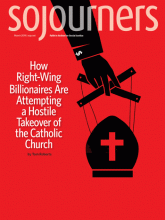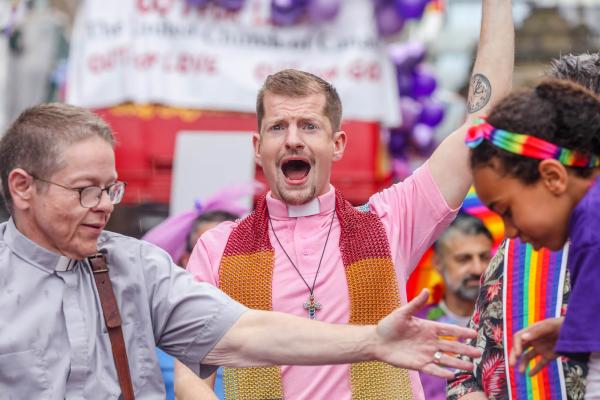IN THE DECADES before the Civil War, three of the nation’s largest Protestant denominations—Baptists, Presbyterians, and Methodists—split over slavery, biblical interpretation, and abolition. Historians have long claimed that these denominational schisms paved the way for a national rift. Once these Protestant churches failed to hold together, breaking into regional bodies of South and North, wrote C.C. Goen in Broken Churches, Broken Nation, “a major bond of national unity” dissolved and hastened America’s warring fate.
As the churches divided over slavery then, so they are dividing over sexuality and gender now. Many of the biblical arguments and hermeneutic approaches once used to support slavery are now employed to reject the humanity, gifts, and dignity of women and LGBTQ persons. If you read 19th century sermons or tracts from Southern Presbyterians, for example, you only need to swap out a few words and you have a blog about how the Bible doesn’t allow women to preach or gay and lesbian couples to marry. Mark Twain once quipped that history doesn’t repeat itself, but it does rhyme. In this case, however, the similarities are so striking that history appears to plagiarize itself.
In recent years, Episcopalians, Lutherans, and Presbyterians have all faced contentious splits over these issues, and now the United Methodist Church—the largest mainline Protestant denomination—is struggling with the same.
History may plagiarize, but it will not repeat. These denominations aren’t as significant as they once were, culturally or politically. The Baptists not only split over slavery but remained permanently divided in Northern and Southern branches, then divided and divided again. The Methodists reunited in the 20th century, as did the Presbyterians. But for all their remarkable contributions, neither denomination regained its former status.
Read the Full Article

